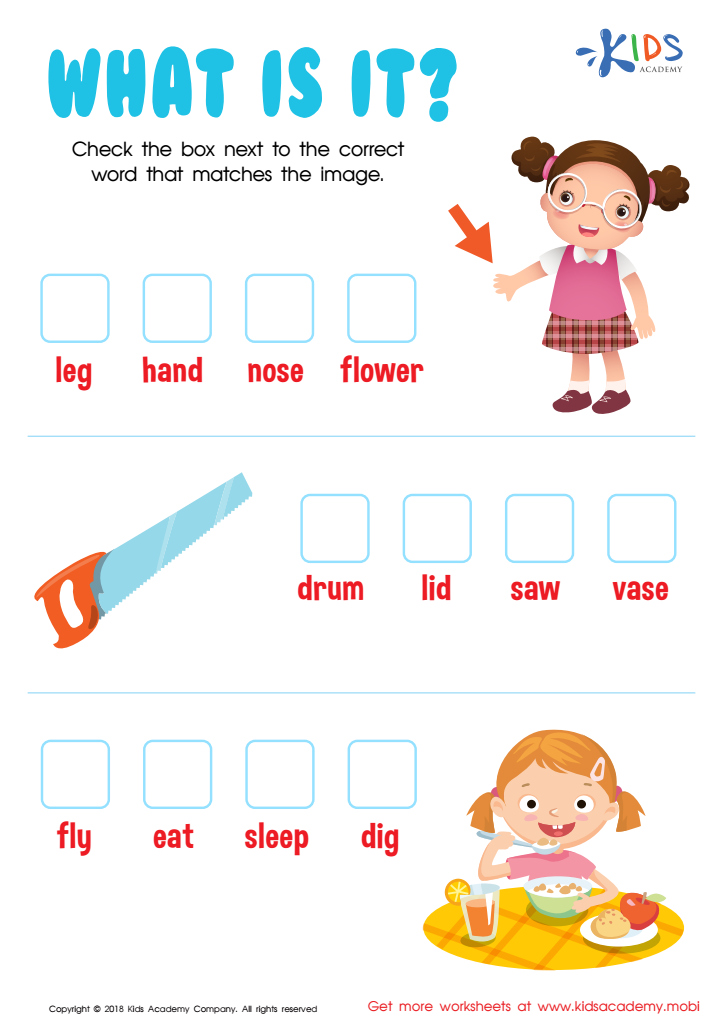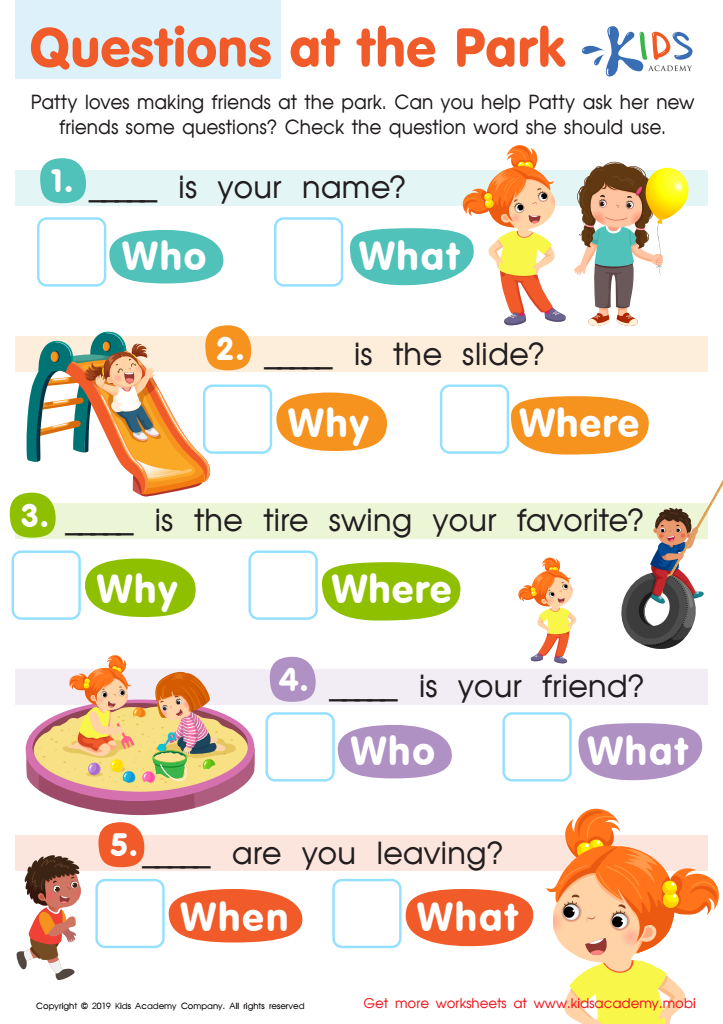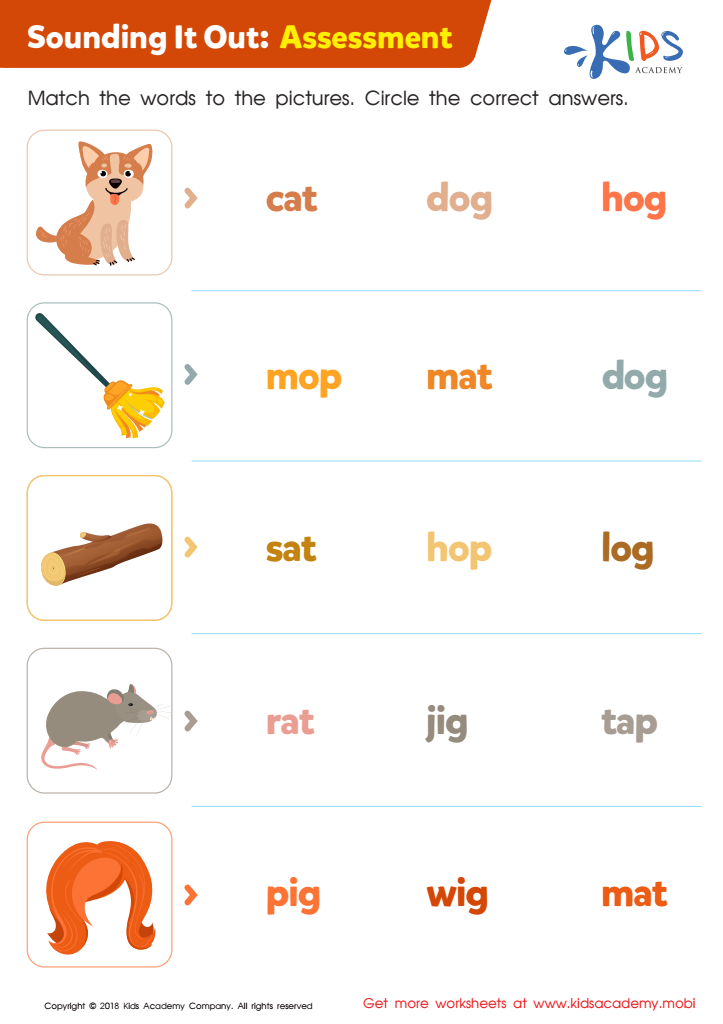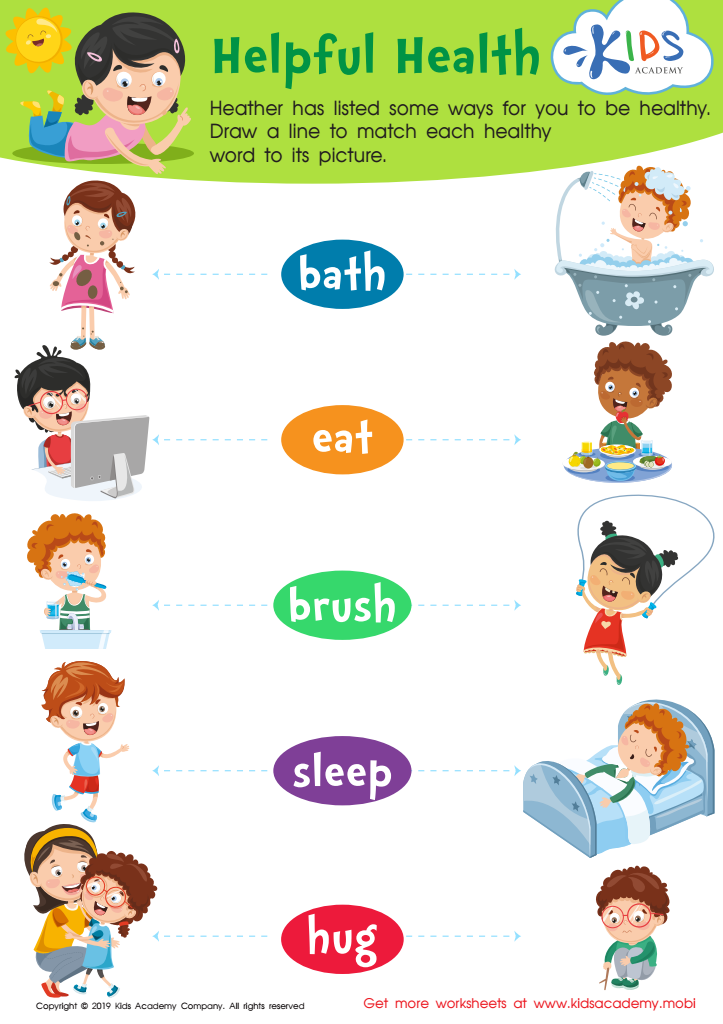Logical Reasoning Building Vocabulary Worksheets for 6-Year-Olds
4 filtered results
-
From - To
Nurture your child's intellectual growth with our "Logical Reasoning Building Vocabulary Worksheets for 6-Year-Olds" found on Kids Academy! These printable worksheets are expertly designed to sharpen young minds by introducing them to essential vocabulary and fostering critical thinking skills. With a fun, engaging approach, kids will enhance their understanding of new words while solving stimulating puzzles and problems. Perfect for developing cognitive abilities and boosting reading comprehension, our worksheets offer an enriching educational experience tailored specifically for early learners. Give your child the tools they need for academic success with these interactive and educational resources!


What Is It? Worksheet


Questions at the Park Worksheet


Sounding it Out: Assessment Worksheet


Helpful Health Worksheet
Parents and teachers should prioritize building logical reasoning and vocabulary for 6-year-olds because these skills are fundamental to a child's cognitive development and future academic success. At this age, children are sponges, absorbing information rapidly, which presents a prime opportunity to lay a strong educational foundation.
Logical reasoning is crucial as it enhances problem-solving abilities, allowing children to think critically and make sense of the world around them. This skill underpins many aspects of learning, including mathematics, reading comprehension, and even social interactions. Encouraging logical reasoning helps children understand cause and effect, recognize patterns, and develop decision-making skills that are essential for everyday life.
Vocabulary building, on the other hand, directly impacts a child's ability to express thoughts, understand instructions, and engage in learning activities. A robust vocabulary boosts reading comprehension and communication skills, enabling children to articulate their ideas clearly and confidently. Moreover, it fosters a love for reading, which is pivotal for lifelong learning.
By focusing on logical reasoning and vocabulary, parents and teachers equip children with the tools to navigate complex concepts, communicate effectively, and understand the world from multiple perspectives. These foundational skills not only support academic achievements but also empower children to become adaptive and insightful individuals.
 Assign to My Students
Assign to My Students






























